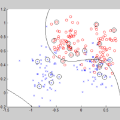Several efforts have been made to synthesize semi-supervised learning (SSL) and open set recognition (OSR) within a single training policy. However, each attempt violated the definition of an open set by incorporating novel categories within the unlabeled training set. Although such \textit{observed} novel categories are undoubtedly prevalent in application-grade datasets, they should not be conflated with the OSR-defined \textit{unobserved} novel categories, which only emerge during testing. This study proposes a new learning policy wherein classifiers generalize between observed and unobserved novel categories. Specifically, our open-set learning with augmented category by exploiting unlabeled data (Open-LACU) policy defines a background category for observed novel categories and an unknown category for unobserved novel categories. By separating these novel category types, Open-LACU promotes cost-efficient training by eliminating the need to label every category and ensures safe classification by completely separating unobserved novel categories that appear over time. Finally, we present a unified approach to establish benchmark results for this emerging and more application-grade learning policy.
翻译:本文提出了 Open-LACU 学习策略,其中分类器在观察到的新类别和未知新类别之间进行泛化。通过将这些新类别类型分离,Open-LACU 促进了具有成本效益的培训,消除了需要为每个类别进行标记的需要,并通过完全分离随时间出现的未知新类别来确保安全分类。最后,我们提出了一种统一的方法来建立此新兴而更适用的学习策略的基准结果。


